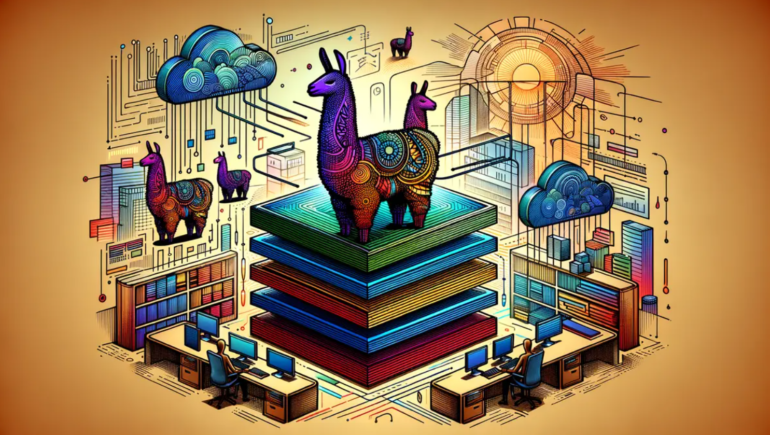TL;DR:
- DataStax collaborates with LlamaIndex to introduce RAGStack, enhancing GenAI applications by mitigating hallucinations in Astra DB.
- LLMs face challenges such as static nature, lack of domain-specific knowledge, black box functionality, and production costs.
- RAG integration supplements generation with retrieved information, improving accuracy and reliability.
- LlamaIndex’s RAG framework enables ingestion, indexing, and querying of external data, empowering GenAI apps to utilize organizational data alongside LLMs.
- DataStax previews LlamaIndex’s LlamaParse API for PDF utilization in RAG processing, enhancing data extraction from PDF tables.
Main AI News:
DataStax, in collaboration with LlamaIndex, introduces an advanced retrieval augmented generation (RAGStack) capability, aimed at mitigating hallucinations in GenAI applications utilizing Astra DB. Positioned as a leading GenAI data company, DataStax delivers Astra DB, a cloud-native Cassandra-based NoSQL database featuring vector embeddings. These embeddings are instrumental in powering Generative AI applications like ChatGPT, yet they can sometimes generate fictitious outputs known as hallucinations. The integration of LlamaIndex offers a solution by facilitating retrieval augmented generation (RAG), a process that supplements the generation phase with retrieved information, thereby enhancing accuracy and reliability.
Davor Bonaci, Executive Vice President and CTO of DataStax, emphasizes the significance of this integration, stating, “By incorporating LlamaIndex into RAGStack, we are equipping developers with a comprehensive GenAI stack that streamlines RAG implementation complexities while ensuring long-term support and compatibility.”
GenAI applications, reliant on Large Language Models (LLMs), face several challenges outlined in a Pinecone blog:
- Static Nature: LLMs lack real-time updates due to their static training datasets.
- Lack of Domain-Specific Knowledge: They operate on generalized tasks and don’t possess knowledge of proprietary company data.
- Black Box Functionality: Understanding the decision-making process of LLMs is challenging.
- Cost and Efficiency Concerns: Production and deployment of LLMs demand significant financial and human resources.
Enterprises employing GenAI chatbots risk user abandonment if these systems produce inaccurate results. However, training LLMs from scratch is prohibitively expensive and time-consuming. Integrating reliable external data sources into existing LLMs can bridge knowledge gaps and yield more comprehensive, accurate, and timely outcomes.
The LlamaIndex RAG framework facilitates the ingestion, indexing, and querying of external data, empowering DataStax-based GenAI applications to leverage organizational data alongside LLMs. This integration enables applications to incorporate proprietary information, enhancing functionalities such as marketing material relevance and support response accuracy.
Jerry Liu, CEO, and Co-founder of LlamaIndex, emphasizes the collaborative effort’s impact, stating, “Together, we’re revolutionizing the RAG landscape, offering a simplified journey for enterprises and developers venturing into GenAI application deployment.”
While RAG can enhance GenAI application outcomes, its integration with external knowledge introduces computational complexity, latency, and prompt complexity. Nevertheless, DataStax assures users that the incorporation of LlamaIndex’s advanced indexing and parsing capabilities in RAGStack enables seamless utilization, either independently or in conjunction with LangChain and its ecosystem.
Additionally, DataStax previews LlamaIndex’s LlamaParse API, which is designed for PDF utilization in RAG processing. This API enhances data extraction from PDF tables through recursive retrievals, effectively transforming PDF documents into vector embeddings. Although currently limited to PDF files, LlamaParse is expected to expand its supported formats in the future, further enhancing its utility and versatility.
Conclusion:
The collaboration between DataStax and LlamaIndex to enhance RAGStack signifies a significant advancement in the GenAI market. By addressing the challenges faced by GenAI applications and offering solutions to improve accuracy and reliability, this partnership opens up new possibilities for enterprises and developers. Integrating external data sources and advancing processing capabilities demonstrates a commitment to innovation and efficiency in the GenAI landscape, poised to reshape how businesses leverage AI technologies.

